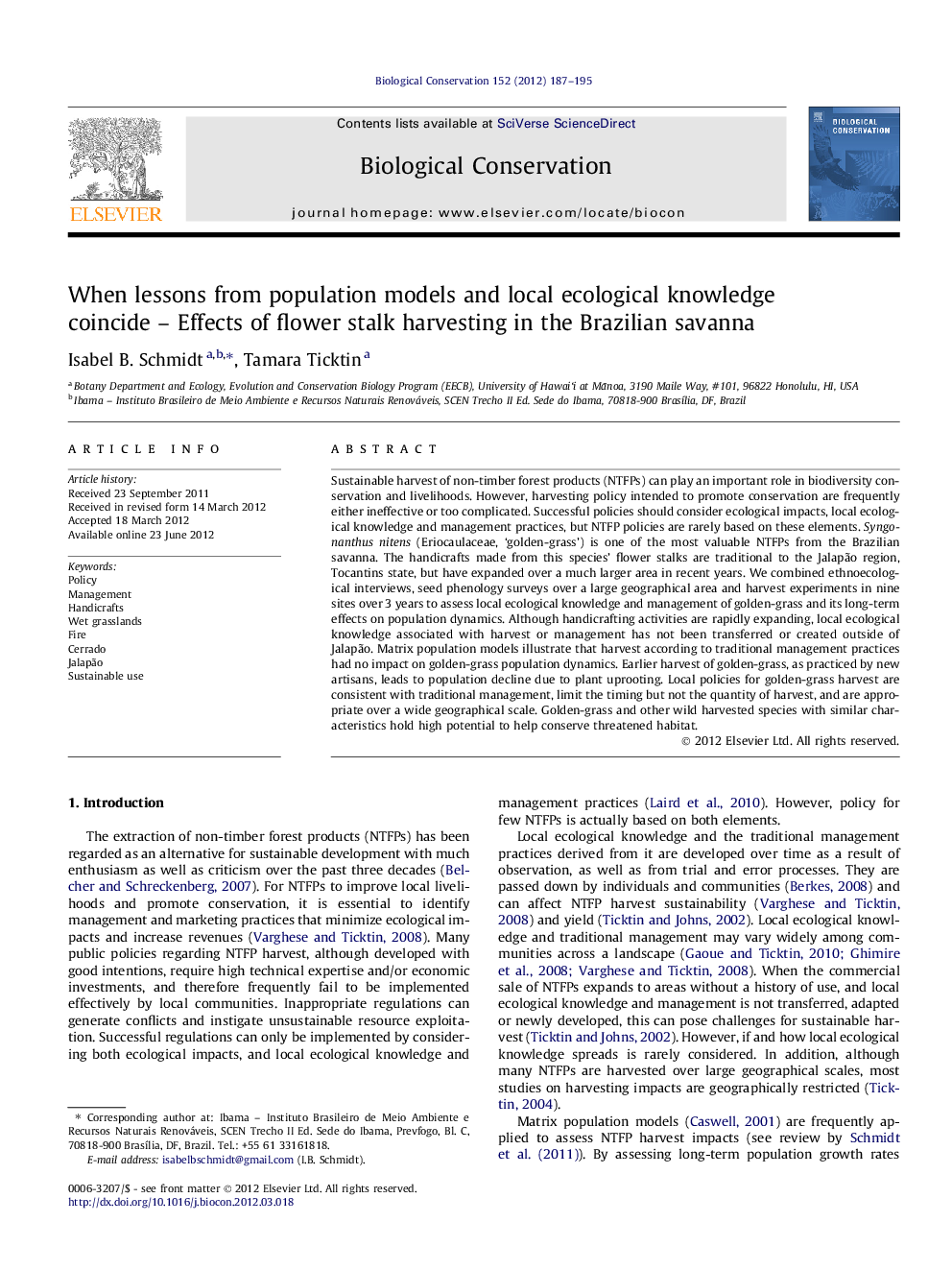| کد مقاله | کد نشریه | سال انتشار | مقاله انگلیسی | نسخه تمام متن |
|---|---|---|---|---|
| 4385262 | 1617949 | 2012 | 9 صفحه PDF | دانلود رایگان |

Sustainable harvest of non-timber forest products (NTFPs) can play an important role in biodiversity conservation and livelihoods. However, harvesting policy intended to promote conservation are frequently either ineffective or too complicated. Successful policies should consider ecological impacts, local ecological knowledge and management practices, but NTFP policies are rarely based on these elements. Syngonanthus nitens (Eriocaulaceae, ‘golden-grass’) is one of the most valuable NTFPs from the Brazilian savanna. The handicrafts made from this species’ flower stalks are traditional to the Jalapão region, Tocantins state, but have expanded over a much larger area in recent years. We combined ethnoecological interviews, seed phenology surveys over a large geographical area and harvest experiments in nine sites over 3 years to assess local ecological knowledge and management of golden-grass and its long-term effects on population dynamics. Although handicrafting activities are rapidly expanding, local ecological knowledge associated with harvest or management has not been transferred or created outside of Jalapão. Matrix population models illustrate that harvest according to traditional management practices had no impact on golden-grass population dynamics. Earlier harvest of golden-grass, as practiced by new artisans, leads to population decline due to plant uprooting. Local policies for golden-grass harvest are consistent with traditional management, limit the timing but not the quantity of harvest, and are appropriate over a wide geographical scale. Golden-grass and other wild harvested species with similar characteristics hold high potential to help conserve threatened habitat.
► Sustainability of harvest is directly related to the local ecological knowledge.
► Harvest is spreading faster than knowledge, threatening sustainability.
► Harvesting regulations in place are adequate on a regional scale.
► Timing of harvest strongly determines harvesting impacts.
Journal: Biological Conservation - Volume 152, August 2012, Pages 187–195